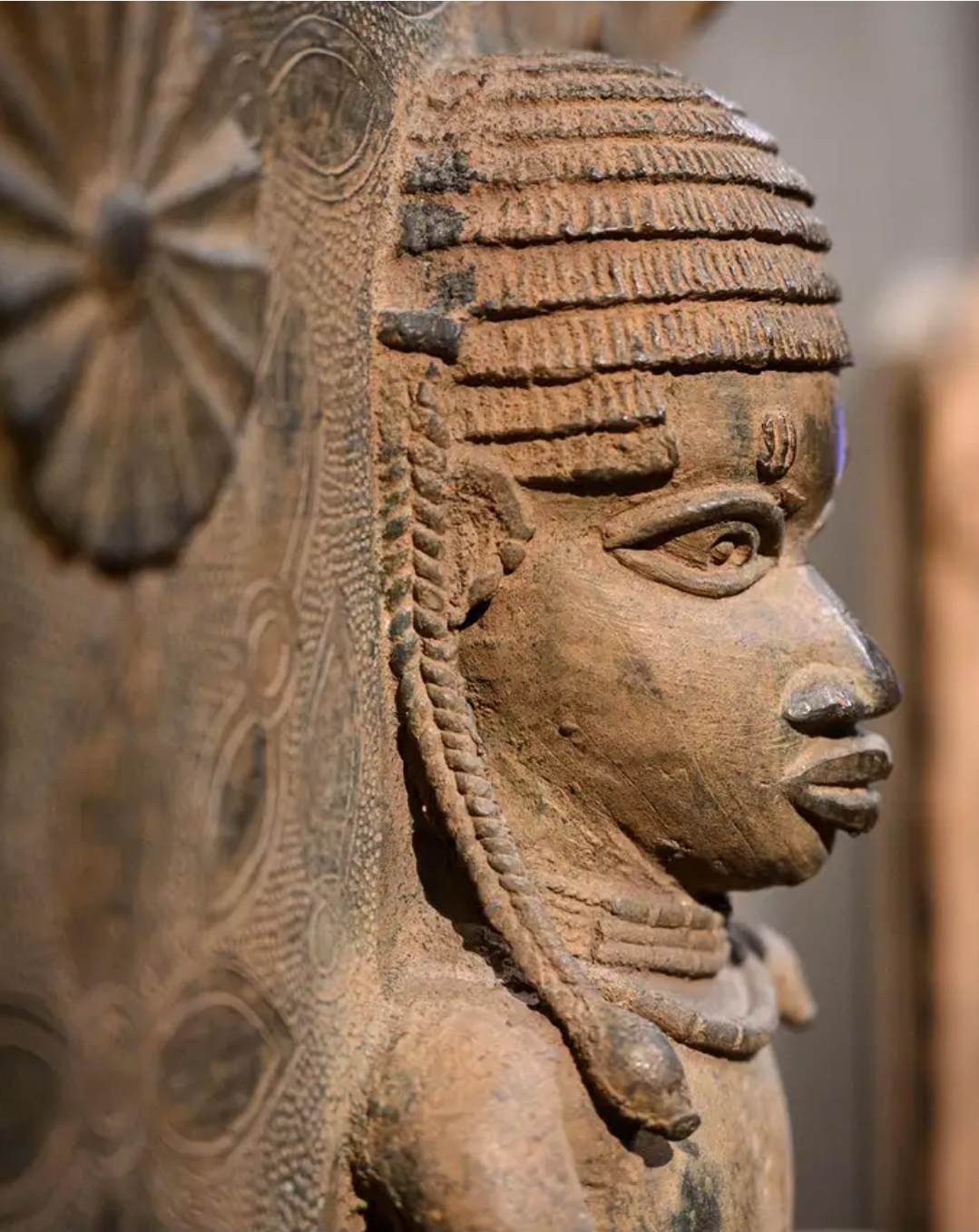All About
The Resurgence of Ifa Religion.
The Resurgence of Ifa Religion -By Abiola Falayajo
The reinvention and rise of the Ifa religion reflect a profound resurgence in African spirituality, cultural heritage, and indigenous knowledge systems. As a Yoruba traditional religion, Ifa is rooted in divination, ethics, and the worship of Olodumare, the Supreme Being and Orishas, deities or forces of nature. Though once marginalized by colonialism and religious conversion, Ifa has gained renewed momentum, driven by cultural pride, global recognition, and a desire for spiritual alternatives in the modern world.
The Roots and Suppression of Ifa
Ifa has existed for centuries as the spiritual backbone of the Yoruba people of southwestern Nigeria, serving as a guide for moral conduct, communal governance, and personal decision-making. Through Ifa’s divination system—mediated by priests called Babalawos, men and Iyanifas ,women —people consult the Odu Ifa, a complex body of wisdom, to seek solutions to life’s challenges. The religion revolves around rituals, festivals, and offerings that honor various Orishas, such as Ogun, god of iron, Sango ,god of thunder, and Osun ,goddess of rivers and fertility.
However, Ifa and other African religions faced intense suppression during the colonial era, with missionaries and European colonizers portraying these indigenous systems as primitive or pagan. Many practitioners were pressured or coerced into converting to Christianity and Islam, which further eroded Ifa’s public presence. Over time, the practice retreated to rural areas or became secretive to avoid stigmatization.
The Reinvention of Ifa in the Modern Era
The reinvention of Ifa reflects how indigenous African religions are adapting to the realities of the 21st century. This revival is driven by multiple factors, including cultural renaissance movements, African diasporic reconnections, and the rise of technology.
Cultural Renaissance and Identity Politics:
There is a growing movement among Africans and people of African descent to reclaim their heritage and reject the colonial narratives that sought to erase traditional practices. In Nigeria, cultural festivals such as the annual Osun-Osogbo Festival attract thousands of visitors, including tourists, academics, and practitioners. Traditional attire, music, and chants associated with Yoruba spirituality are finding their way into mainstream culture, blending seamlessly with modern expressions.
The rise of Afrobeats and Nollywood has also played a role in reintroducing Yoruba cosmology to the younger generation. In music videos, films, and art, Orisha figures are being represented, creating a sense of pride in African traditions. This cultural renaissance has extended beyond Nigeria, with communities in the U.S., Brazil, and Cuba reconnecting with Ifa as part of their identity and spiritual journey.
Diasporic Reconnections and Globalization:
The African diaspora, particularly in regions like the Caribbean, Latin America, and North America, has significantly contributed to the global revival of Ifa. Afro-Caribbean religions, such as Santeria (Cuba), Candomble (Brazil), and Lukumi (Puerto Rico), are rooted in Yoruba traditions that survived the transatlantic slave trade. These faiths were preserved in syncretized forms, often blended with Catholicism to avoid persecution.
In recent decades, practitioners from these communities have reconnected with their Yoruba roots, traveling to Nigeria for initiations, festivals, and deeper training. These exchanges have resulted in new forms of worship, fostering global communities centered around Ifa. The migration of African spiritual leaders to Western countries has also contributed to the spread, making Ifa accessible to a growing number of adherents worldwide.
The Role of Technology and Social Media:
Technology has facilitated the reinvention of Ifa by making its teachings and rituals accessible across the globe. Social media platforms like Instagram, YouTube, and Facebook are filled with content about Yoruba spirituality, including divination services, educational videos, and virtual consultations with Babalawos. Books, podcasts, and online courses dedicated to Ifa theology are gaining popularity, appealing to individuals seeking spiritual guidance and ancestral connection.
This digital presence has also fostered global communities, where practitioners share experiences, teachings, and rituals. Technology has not only made Ifa more visible but has also challenged the stereotypes surrounding it, promoting a deeper understanding of the religion beyond misconceptions of witchcraft or fetishism.
The Appeal of Ifa’s Philosophy and Spiritual Framework
One of the reasons for the rise of Ifa is its emphasis on personal and communal well-being. The religion’s teachings offer practical guidance for achieving harmony and balance in everyday life. It promotes values such as patience, humility, self-discipline, and the importance of working with nature’s cycles.
Unlike many organized religions that rely on strict dogma, Ifa’s divination system provides personalized advice based on an individual’s circumstances. Through rituals, offerings, and prayers, practitioners seek alignment with the forces of nature and the guidance of Orishas, enhancing their personal growth and connection to the divine. This adaptability makes Ifa attractive to those seeking a spiritual path that aligns with both individual freedom and community responsibility.
Another aspect of Ifa’s appeal is its ecological awareness. The religion teaches respect for natural elements, such as rivers, forests, and animals, reflecting a worldview that aligns with contemporary concerns about environmental sustainability. Many individuals drawn to Ifa appreciate its reverence for nature and see it as an antidote to the materialism and disconnection prevalent in modern society.
Challenges and Controversies
Despite its resurgence, Ifa still faces challenges. Misconceptions persist, with many people associating it with superstition or occult practices. In societies where Christianity and Islam dominate, practitioners of Ifa sometimes face discrimination or social stigma. Additionally, there are debates within the Ifa community about how much the religion should evolve. Some elders argue for strict adherence to traditional practices, while others advocate for flexibility in adapting to modern realities.
Another challenge lies in the commercialization of spiritual services. With the increasing popularity of Ifa, there is concern about opportunists offering inauthentic teachings or charging exorbitant fees for rituals and initiations, potentially diluting the religion’s core values.
The Future of Ifa
The rise of Ifa signifies a broader movement toward cultural reclamation, spiritual diversity, and decolonization. As people seek deeper connections to their ancestry and nature, Ifa offers a pathway to understanding one’s roots and finding meaning beyond the confines of Western religious frameworks.
In the future, Ifa is likely to become even more globalized and institutionalized, with more practitioners embracing the religion in various forms, whether through traditional worship, syncretic practices, or contemporary reinterpretations. Scholars and cultural advocates continue to promote Ifa’s philosophy, ensuring that it will not only survive but thrive in a rapidly changing world.
The resurgence of Ifa is not just about religious practice; it reflects a broader journey of identity, resilience, and self-determination for African people and their descendants. Through reinvention, Ifa serves as a reminder of the enduring power of indigenous knowledge and the ability of ancient traditions to adapt and flourish in modern times.
Abiola Falayajo writes from Melbourne, Australia.




